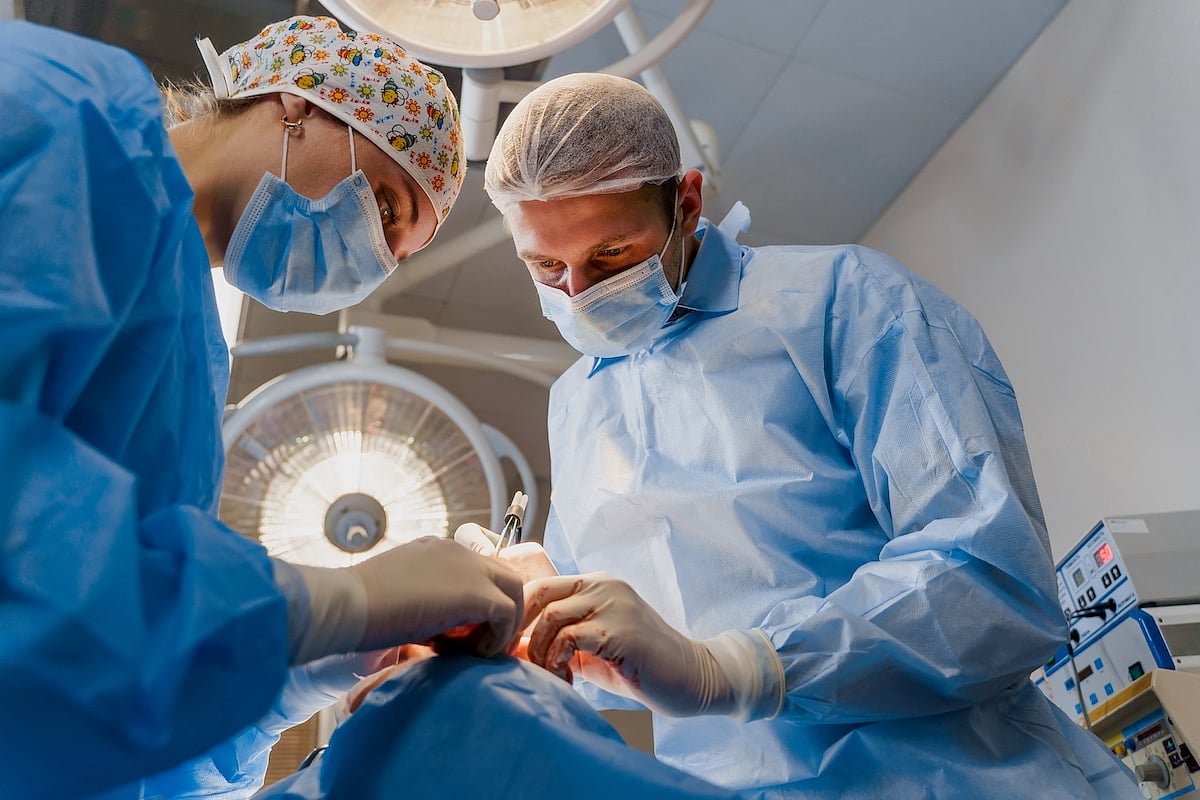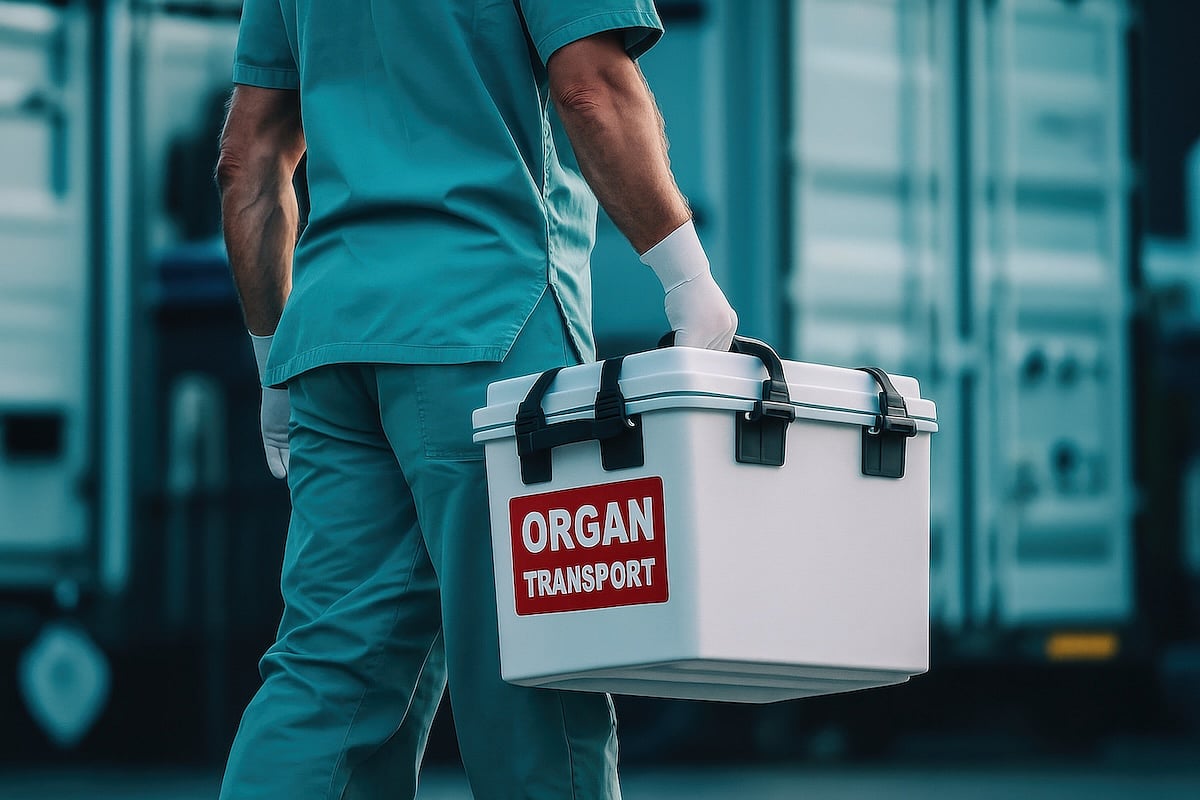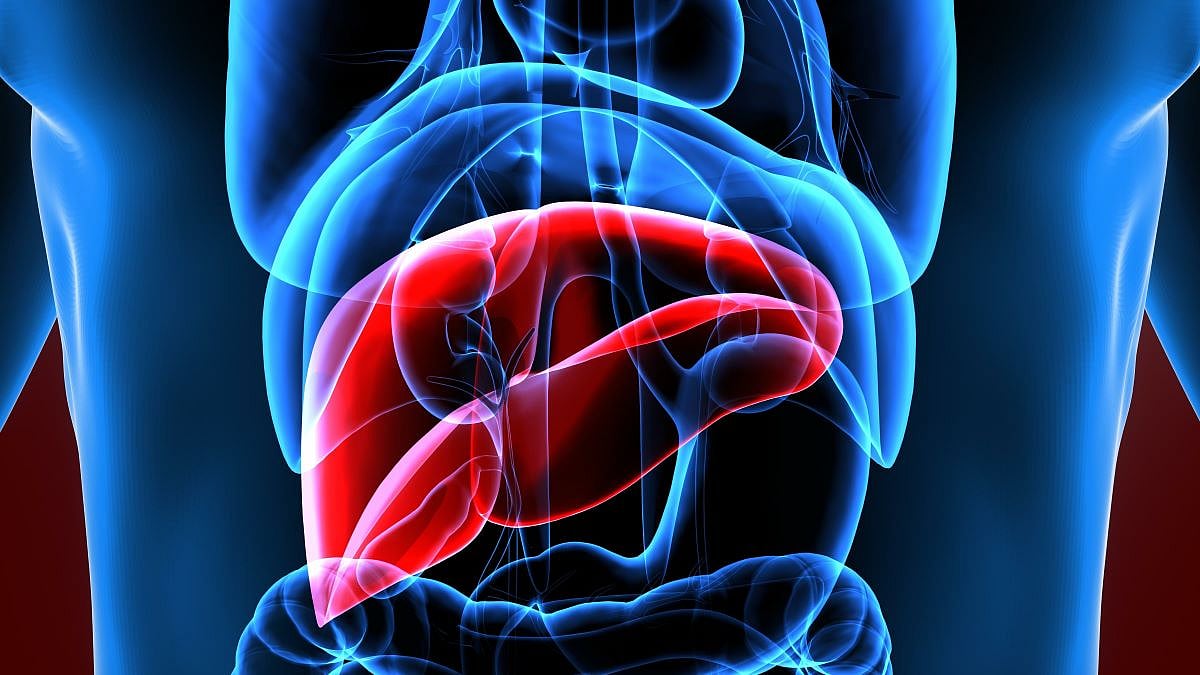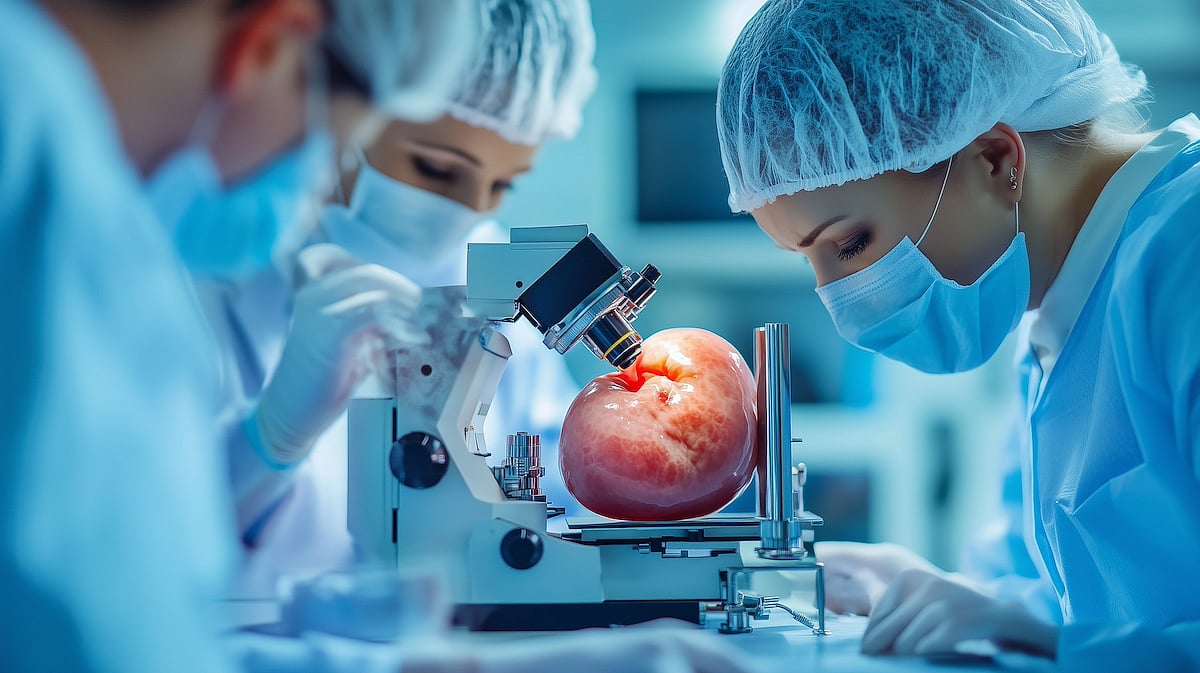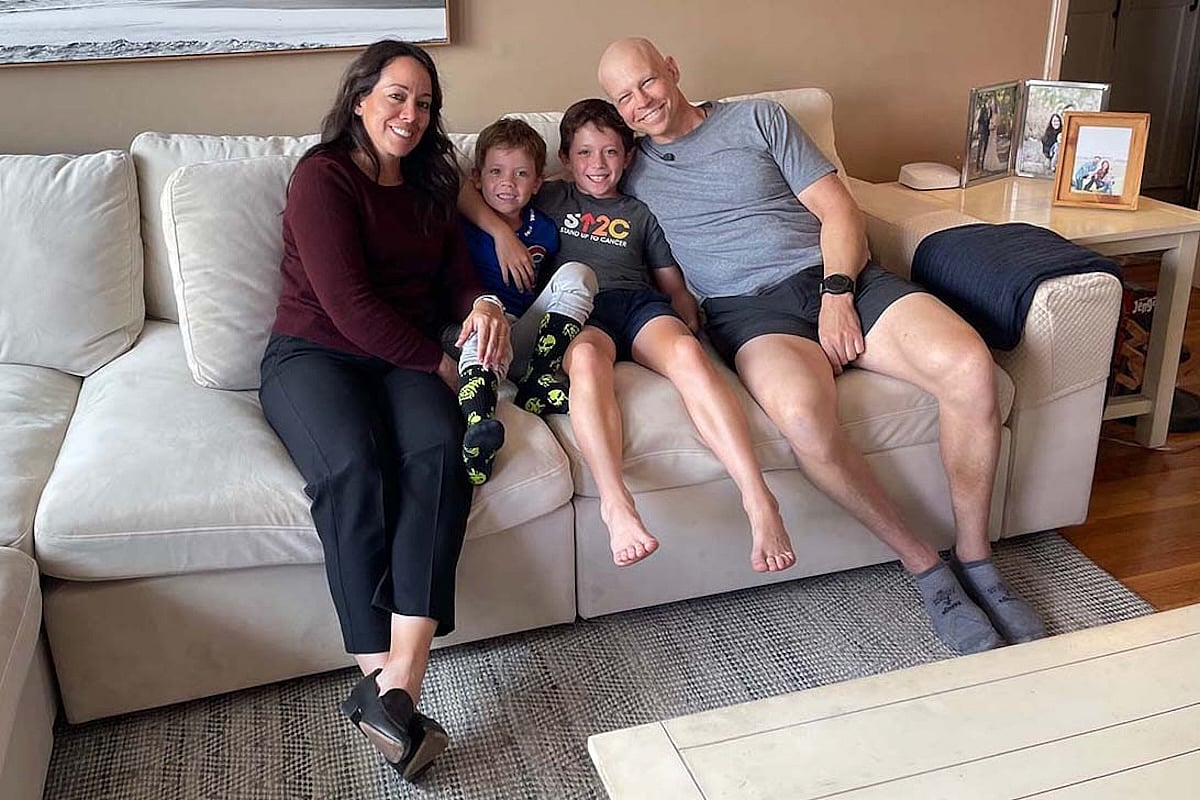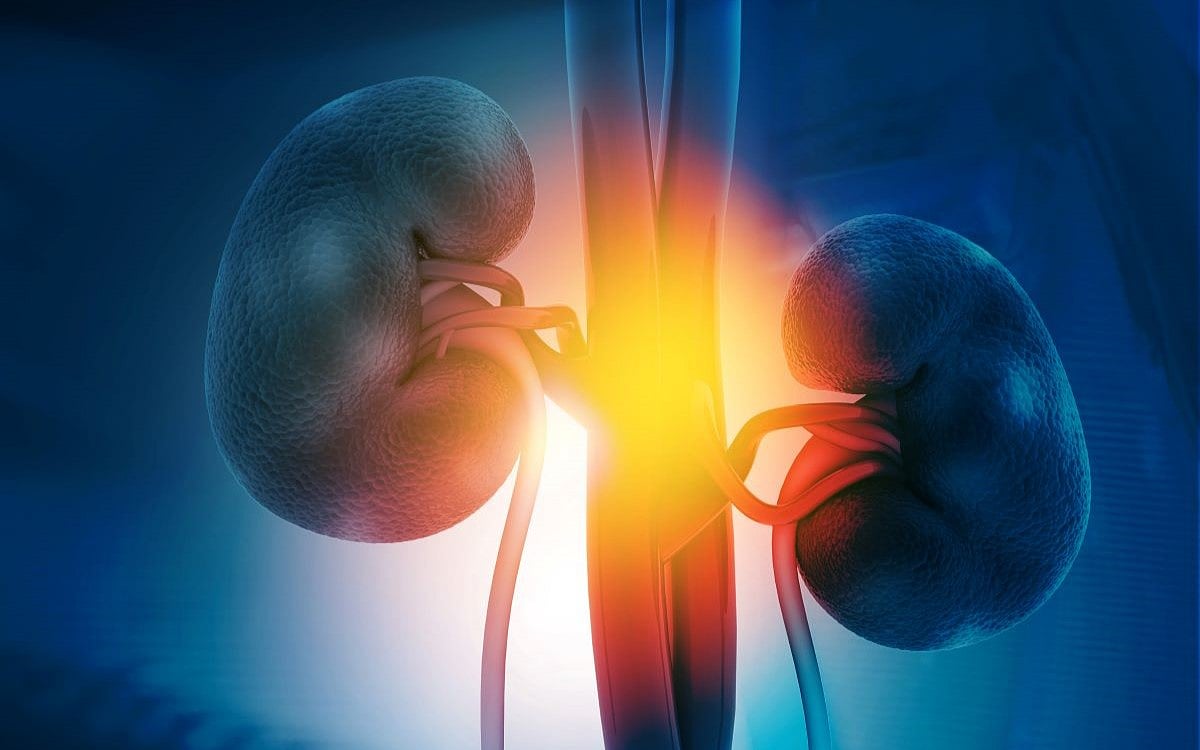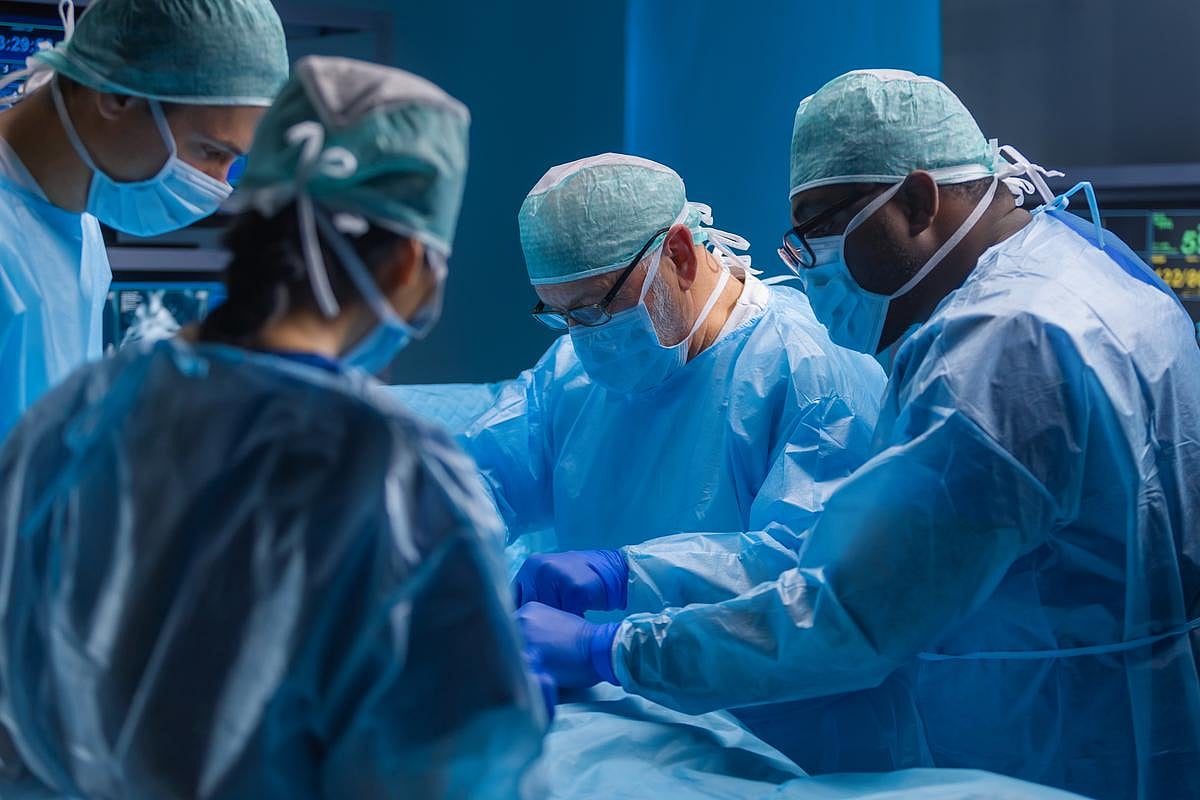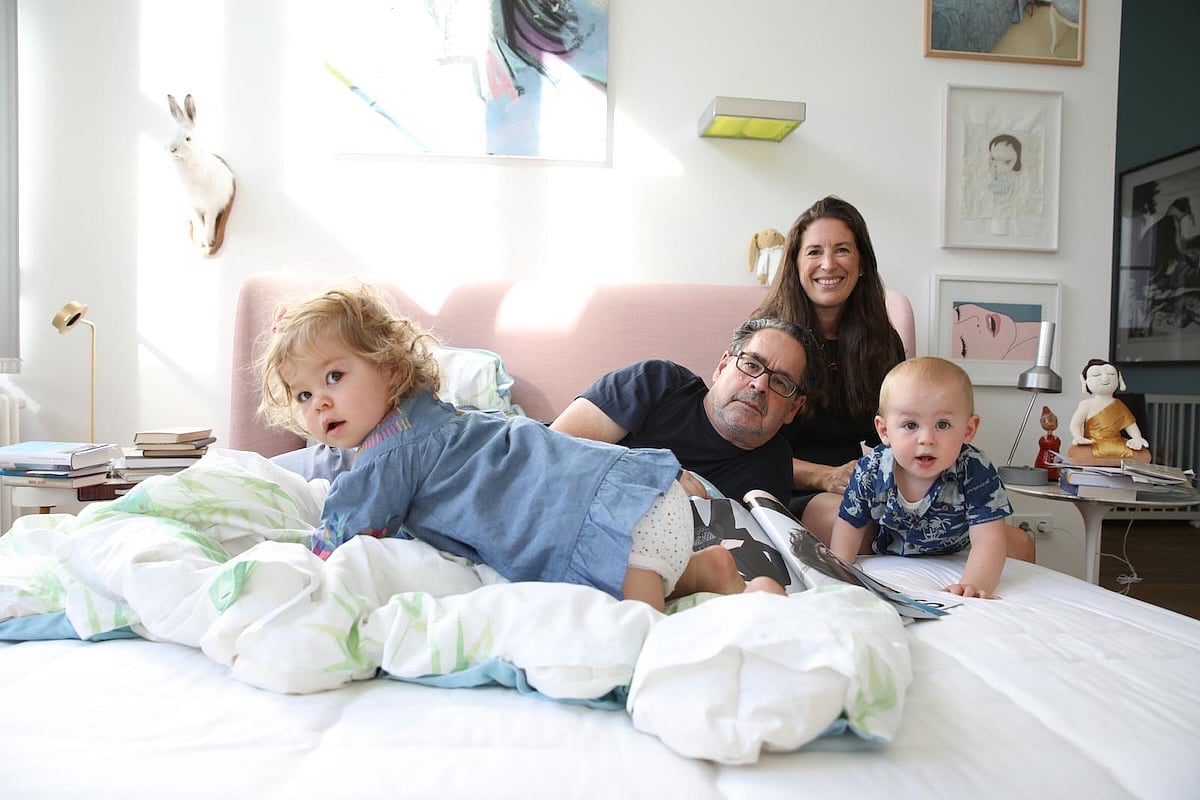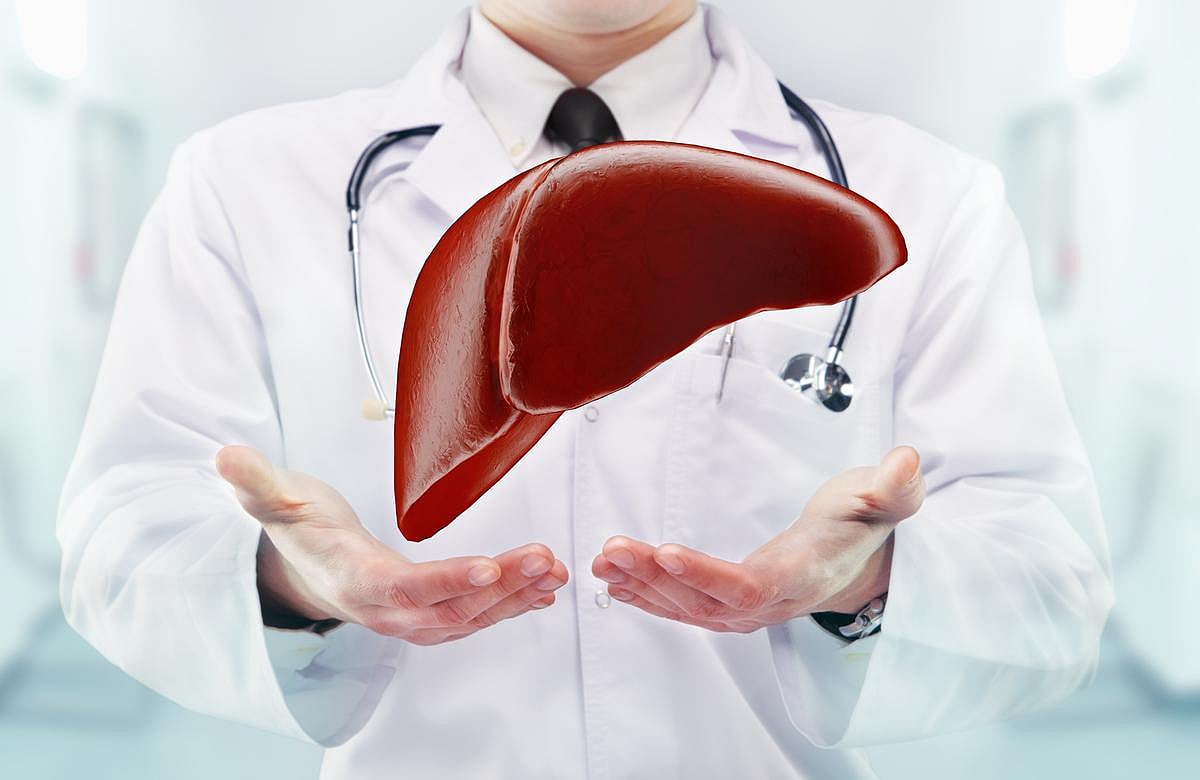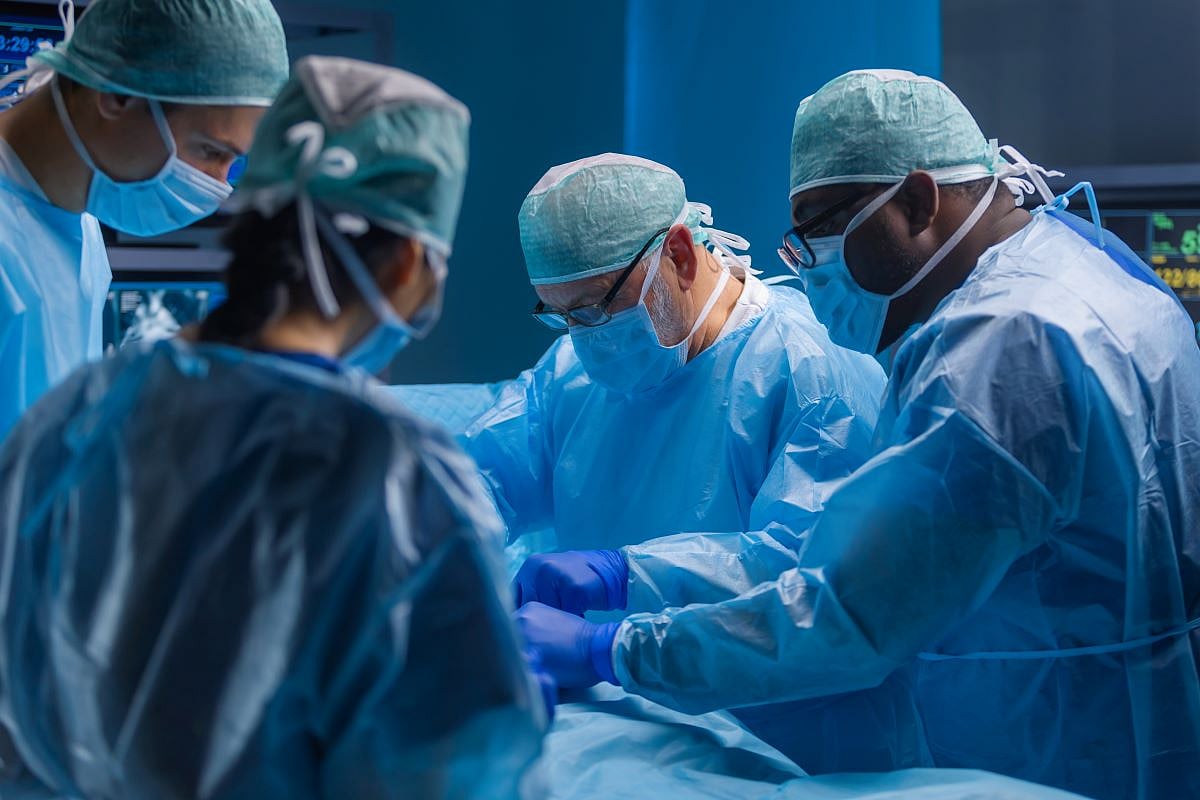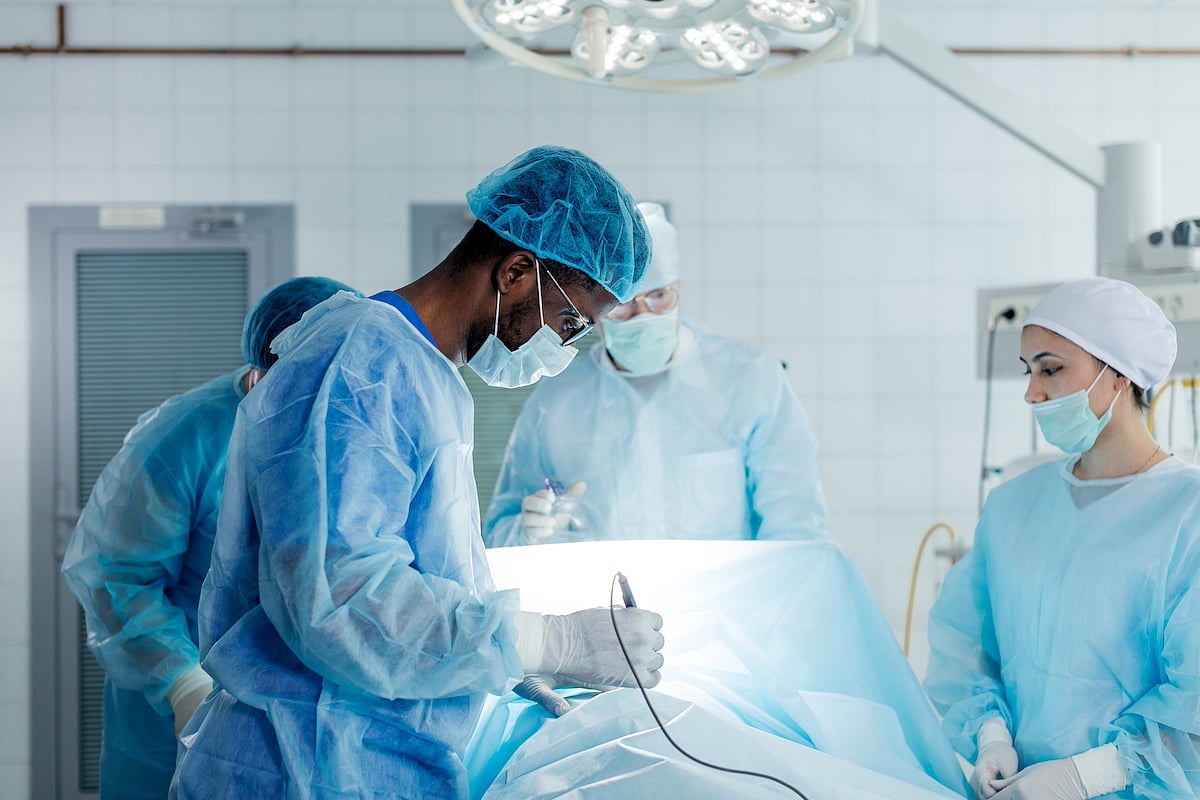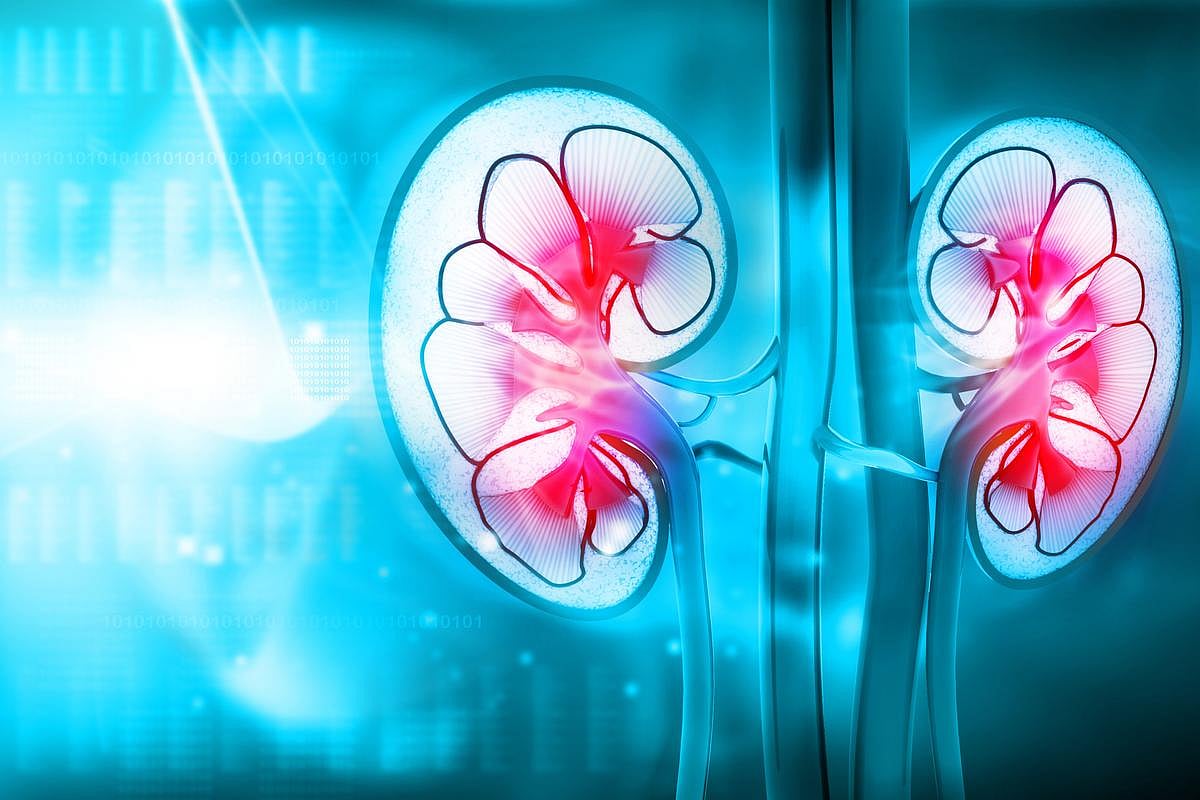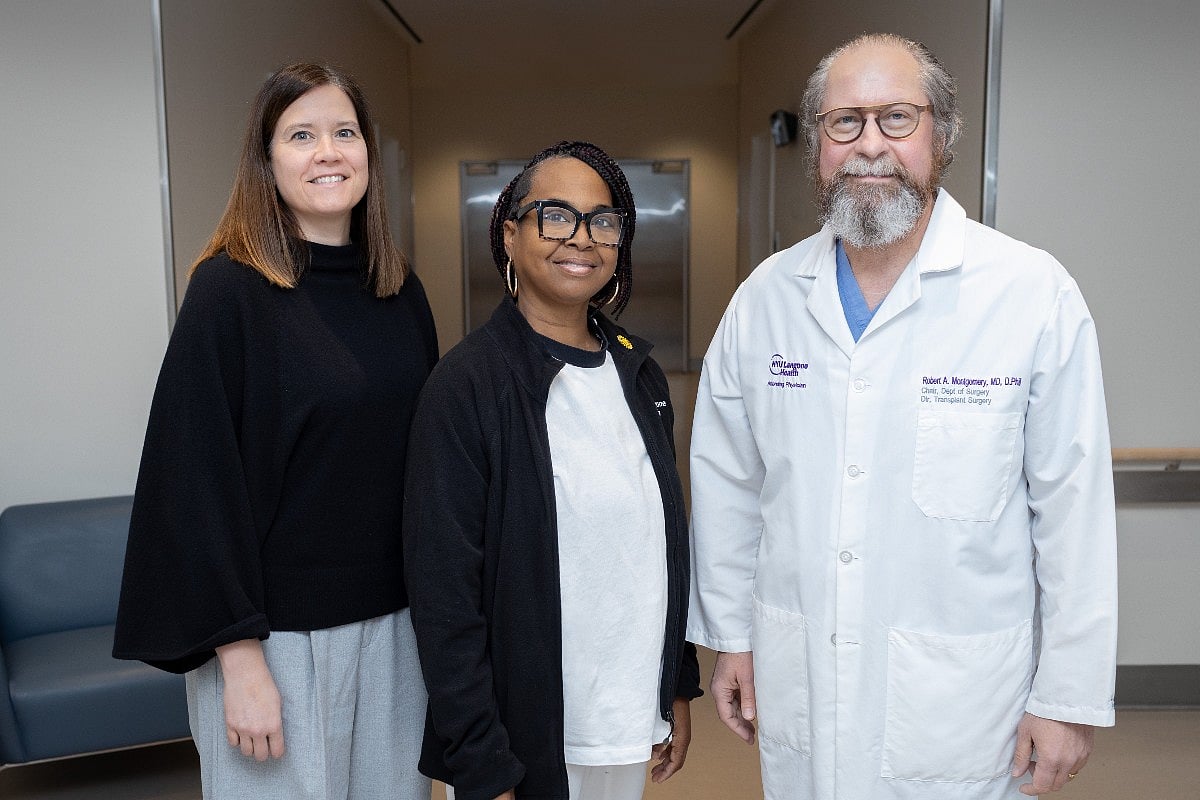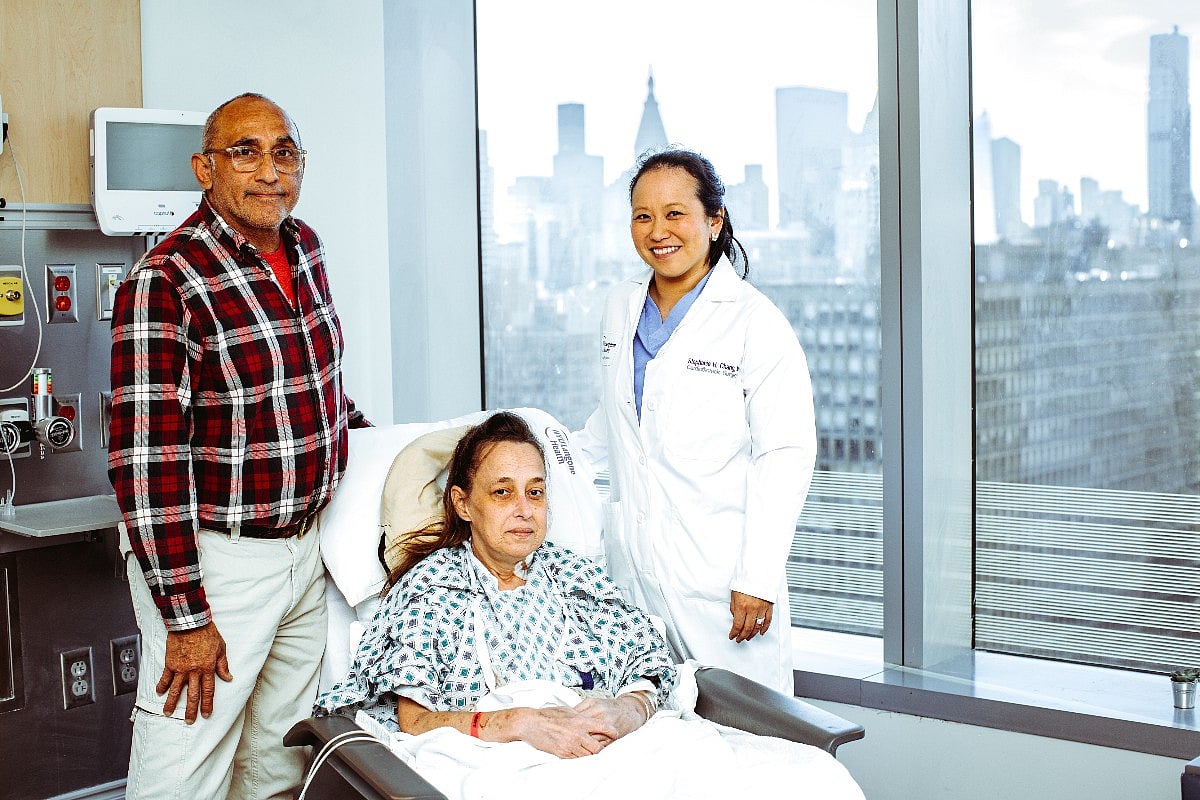Get Healthy!
Results for search "Organ Transplants".
02 Sep
From Cancer Survivor to Transplant Pioneer: Chicago Woman’s Remarkable Journey
Blinded by childhood cancer, a newly engaged Chicago woman receives rare triple-organ transplant at Northwestern Medicine.
12 May
Mother of Twins Receives Life-Saving Double Lung Transplant after Cancer Diagnosis
A new mother of twins from Berlin finds a miracle in Chicago after being diagnosed with advanced lung cancer. Surgeons at Northwestern Medicine save her life with a double-lung transplant.
Health News Results - 107
U.S. health officials unveiled proposed changes to the nation’s transplant system, hoping to help more patients get lifesaving organs, even when donations aren’t perfect.
The Centers for Medicare and Medicaid Services (CMS) said the plan would tighten oversight of organ procurement organizations, known as OPOs.
These groups recover organs from people who have died ...
- I. Edwards HealthDay Reporter
- |
- January 30, 2026
- |
- Full Page
More than 100,000 people in the U.S. are waiting for an organ transplant, and most need a kidney. Thousands die each year before a matching organ becomes available.
New federal data reviewed by the Kidney Transplant Collaborative show that 116 fewer kidney transplants were performed last year than in 2024.
While that dif...
- I. Edwards HealthDay Reporter
- |
- January 16, 2026
- |
- Full Page
A rare case of rabies linked to an organ transplant has resulted in two deaths, federal health officials announced.
The U.S. Centers for Disease Control and Prevention (CDC) reported that a man in Idaho became infected with rabies after a skunk scratched his leg in October 2024.
About five weeks later, he deve...
- I. Edwards HealthDay Reporter
- |
- December 8, 2025
- |
- Full Page
Artificial intelligence (AI) might help more donated livers reach recipients in a usable state by predicting how soon an organ donor will die after being taken off of life support, a new study says.
The time between removal of life support and death can’t exceed 30 to 45 minutes, or transplant surgeons will reject a donated liver because it’s less likely to work effectively in...
- Dennis Thompson HealthDay Reporter
- |
- November 18, 2025
- |
- Full Page
A first-of-its-kind clinical trial is beginning in the United States to see if pig kidneys could help save the lives of people waiting for a human organ transplant.
United Therapeutics, the company that developed the genetically edited pig kidneys, said Monday that the first transplant in the trial has already taken place at
People who end their terminal illness through assisted suicide can safely make a difference in the lives of others through organ donation, a new study says.
Liver transplants performed using organs donated following euthanasia had outcomes similar to those made with donations after death from natural causes, researchers reported Oct. 26 in the
A 67-year-old New Hampshire man has set a medical milestone after living more than nine months with a gene-edited pig kidney, doctors announced Monday.
The experimental transplant, performed by surgeons at Mass General Brigham, lasted 271 days, the longest anyone has survived with an animal organ.
Doctors said Tim Andrews of Concord, New Hampshire, had the transplanted kidney ...
- I. Edwards HealthDay Reporter
- |
- October 28, 2025
- |
- Full Page
Women are less likely than men to find a donor lung, despite new systems to make organ allocation fairer, a new study says.
Women were 32% less likely than men to receive a lung implant before the reforms went into effect in March 2023, researchers reported recently in the Annals of Thoracic Surge...
- Dennis Thompson HealthDay Reporter
- |
- October 28, 2025
- |
- Full Page
A Los Angeles-area dad is surviving leukemia thanks to his 10-year-old son, who earlier this year became the youngest-ever stem cell donor at Cedars-Sinai Medical Center.
Stephen Mondek’s donation provided a brand-new immune system for his father, Dr. Nick Mondek, who has been battling a...
- Dennis Thompson HealthDay Reporter
- |
- September 22, 2025
- |
- Full Page
Federal health officials have moved to close down a Miami-based organ donation agency, citing unsafe practices, missed donations and critical paperwork errors.
The Life Alliance Organ Recovery Agency, part of the University of Miami Health System, is one of 55 nonprofit organ procurement organizations (OPOs) in the United States.
These groups recover organs from deceased donors and...
- I. Edwards HealthDay Reporter
- |
- September 19, 2025
- |
- Full Page
A 54-year-old New Hampshire man is recovering well after receiving an experimental pig kidney transplant.
Bill Stewart, an athletic trainer from Dover, underwent the procedure June 14 at Massachusetts General Hospital (Mass General) in Boston. “I really wanted to contribute to the science of it,” Stewart told The Associated Press.
Stewart’s case marks anot...
- I. Edwards HealthDay Reporter
- |
- September 9, 2025
- |
- Full Page
Stricken with cancer in infancy, Jessica Lopez endured tumor-fighting treatments that saved her young life but also left her with lasting heart damage.
By the time she reached her early 30s, Lopez, who was left blind by her cancer, also found herself in triple-organ failure — her heart, liver and kidneys were shutting down.
A rare triple-organ transplant was deem...
- Ernie Mundell HealthDay Reporter
- |
- September 2, 2025
- |
- Full Page
Doctors in China transplanted a genetically modified pig lung into a man, where it functioned for nine days, according to a new study published in the journal Nature Medicine.
Researchers at Guangzhou Med...
- I. Edwards HealthDay Reporter
- |
- August 26, 2025
- |
- Full Page
Minnesota native Mark Welter needed a kidney transplant, but wasn’t happy that he’d be on immune-suppressing drugs for the rest of his life.
The drugs are critical to keep a patient’s body from rejecting a donated organ, but they come with many downsides: severe side effects like headaches or tremors, and increased risk of infection and cancer.
But a new approach t...
- HealthDay Reporter
- Dennis Thompson
- |
- July 15, 2025
- |
- Full Page
Folks who might need a kidney transplant in the future shouldn’t rush to get one, a new study says.
Patients gain no benefit from getting a donated kidney before their own kidneys deteriorate to the point that they require dialysis, researchers reported recently in the journal Transplant...
- HealthDay Reporter
- Dennis Thompson
- |
- June 4, 2025
- |
- Full Page
More donor hearts could become available for transplant, thanks to a new discovery that could protect them from damage during transport.
Researchers have identified a biological process that contributes to donor heart injury during cold storage, according to a report published May 19 in the journal Nature Cardiovascular Rese...
- HealthDay Reporter
- Dennis Thompson
- |
- May 22, 2025
- |
- Full Page
New guidelines for allocating donated lungs are saving more lives, a new study says.
By prioritizing medical urgency, the guidelines caused a dramatic decline in the number of people who die waiting for a lung transplant, researchers reported Sunday at the American Thoracic Society’s international conference in San Francisco.
Patients are now three times less likely to die on ...
- HealthDay Reporter
- Dennis Thompson
- |
- May 21, 2025
- |
- Full Page
Doctors in Southern California have performed the first human bladder transplant, offering new hope to people with serious bladder problems.
The surgery was done earlier this month by two doctors from the University of California, Los Angeles (UCLA) and the University of Southern California (USC), The New York Times reported.
The patient, 41-year-old Oscar Larrainzar, had l...
- HealthDay Reporter
- I. Edwards
- |
- May 19, 2025
- |
- Full Page
The timing of Cornelia Tischmacher’s pneumonia couldn’t have been worse -- eight months after the Berlin mom gave birth to twins.
But the pneumonia just wouldn’t go away, so Tischmacher went to a doctor in January 2018. Tests revealed that the then-40-year-old had stage 3 lung cancer...
- HealthDay Reporter
- Dennis Thompson
- |
- May 12, 2025
- |
- Full Page
A new clinical trial will soon test if a pig liver can help people whose own livers have suddenly stopped working.
The hope? That animal organs can temporarily filter a patient’s blood, giving their own liver time to rest and possibly recover.
The U.S. Food and Drug Administration (FDA) has approved the first-of-its-kind study, according to e...
- HealthDay Reporter
- I. Edwards
- |
- April 16, 2025
- |
- Full Page
Doctors have removed a genetically modified pig's kidney from an Alabama woman after her body rejected the organ, NYU Langone Health reported.
Towana Looney, 53, had the transplanted organ for 130 days -- the longest anyone has ever tolerated an organ from a gen...
- HealthDay Reporter
- I. Edwards
- |
- April 15, 2025
- |
- Full Page
A Michigan resident has died after receiving an organ transplant infected with rabies, state health officials said Wednesday.
The patient got the transplant at an Ohio hospital in December and passed away the following month.
The exact type of organ and the patient’s identity have not been shared, according to NBC News, which also reported that the organ donor did not...
- HealthDay Reporter
- I. Edwards
- |
- March 28, 2025
- |
- Full Page
In a groundbreaking series of surgeries, doctors at Duke Health have successfully performed the world’s first living mitral valve replacement, saving the lives of three young girls across North Carolina.
The procedure became possible after 11-year-old Journi Kelly, from Wilson, N.C., received a full heart transplant at Duke.
Instead of getting rid of her original heart, ...
- HealthDay Reporter
- India Edwards
- |
- March 3, 2025
- |
- Full Page
Key Takeaways
Kidney transplant recipients who’ve never been exposed to the Epstein-Barr virus but receive organs from a donor who has been may develop a rare and aggressive cancer
As many as 1,200 patients a year could be at risk for that cancer, called post-transplant lymphoproliferative disorder (PTLD)
This risk may be much...
- HealthDay Reporter
- Denise Mann
- |
- February 14, 2025
- |
- Full Page
An Alabama woman has become the longest-living recipient of a pig organ transplant, passing 60 days with a gene-edited kidney and showing no signs of slowing down.
"I'm superwoman," Towana Looney, 53, told The Associated Press as she marked day 61 on Saturday.
Looney’s transplant, performed at NYU Langone Health on Nov. 25, represents a major step forward in the quest...
- HealthDay Reporter
- India Edwards
- |
- January 27, 2025
- |
- Full Page
A 53-year-old woman from Alabama has a new lease on life after receiving a gene-edited kidney obtained from a pig, living healthily with the new organ for over a month, her New York City doctors announced Tuesday.
Towana Looney's road to kidney failure began with the ultimate gift: In 1999, she donated one of her kidneys to her ailing mother.
However,
People with HIV can now receive a potentially life-saving kidney or liver from a donor who is also infected with the virus, according to new rules announced Tuesday by the Biden administration.
According to an announcement from the Department of Heal...
- HealthDay Reporter
- Ernie Mundell
- |
- November 26, 2024
- |
- Full Page
A 57-year-old woman with COPD has received the world's first fully robotic double lung transplant.
The breakthrough surgery was performed in October at NYU Langone Health in New York City by Dr. Stephan...
- HealthDay Reporter
- Carole Tanzer Miller
- |
- November 22, 2024
- |
- Full Page
People living with HIV who need a kidney can rest assured that outcomes are similar whether their kidney donor was also HIV-positive or not, a new study finds.
One- and three-year survival was the same, regardless of the donor's HIV status, as were the rate of serious side effects, such as infection, fever and organ rejection, said a team reporting Oct. 16 in the New England Journal o...
- HealthDay Reporter
- Ernie Mundell
- |
- October 16, 2024
- |
- Full Page
There have been 50 face transplants performed in 11 countries since the surgery was pioneered back in 2005, and long-term outcomes have been favorable, a new review finds.
In total, 85% of people receiving these complex surgeries survived five years and 74% were still alive a decade after transplant completion, researchers report.
When the numbers focused on deaths linked to the tra...
- HealthDay Reporter
- Ernie Mundell
- |
- September 18, 2024
- |
- Full Page
Key Takeaways
The recipient of the world’s first combined whole-eye and partial face transplant is doing well more than a year out from his groundbreaking surgery, NYU Langone doctors report.
Aaron James, a 46-year-old military veteran from Arkansas, says over the past year his new face has allowed him to enjoy things others take for granted.
N...
- HealthDay Reporter
- Dennis Thompson
- |
- September 9, 2024
- |
- Full Page
Uterine transplants are relatively rare and recent -- the first was performed in 2011, and to date a little more than 100 transplants have been conducted worldwide.
However, a new study finds that these procedures are often successful, leading to pregnancies and live births in 14 out of the 20 patients assessed.
"A successfully transplanted uterus is capable of functioning at least ...
- HealthDay Reporter
- Ernie Mundell
- |
- August 16, 2024
- |
- Full Page
The U.S. heart transplant list for children isn’t accurately ranking the sickest kids highest, making it more likely they may die while waiting for a donor heart, a new study claims.
Some very sick children were categorized as category 2, the lowest of the three categories of urgency on the list, while others who were not as sick had a 1A “most urgent†status, researche...
- HealthDay Reporter
- Dennis Thompson
- |
- August 5, 2024
- |
- Full Page
The second person to receive a kidney from a genetically modified pig has died, surgeons at NYU Langone Health announced Tuesday.
The 54-year-old patient, Lisa Pisano, had both kidney failure and heart failure. She received the pig kidney April 12, eight days after she had a mechanical ...
- HealthDay Reporter
- Robin Foster
- |
- July 10, 2024
- |
- Full Page
For years, Marty Kedian had been without a voice.
Kedian, who hails from Haverhill, Mass., has undergone dozens of surgeries while being treated for a rare form of laryngeal cancer.
As a result, he was robbed of his voice -- along with the ability to swallow and breathe normally.
"I was alive, but I wasn't living," Kedian said. "I love to talk to people everywhere I go, and I ...
- HealthDay Reporter
- Dennis Thompson
- |
- July 10, 2024
- |
- Full Page
People with an "unhealthy"gut microbiome appear to be more likely to die following an organ transplant, a new study warns.
These gut microbe patterns are specifically associated with deaths from cancer and infection, regardless of the organ that's been transplanted, res...
- HealthDay Reporter
- Dennis Thompson
- |
- July 10, 2024
- |
- Full Page
John Nicolas was deep into kidney transplant surgery when he decided to ask his doctors if they'd started yet.
"At one point during surgery, I recall asking, 'Should I be expecting the spinal anesthesia to kick in?'"Nicolas, 28, recalled in a news release. "They had already been doing a lot of work and I had been completely oblivious to that fact. Truly, no sensation whatsoever."
Ni...
- HealthDay Reporter
- Dennis Thompson
- |
- June 24, 2024
- |
- Full Page
A woman who was the second person to ever receive a kidney from a genetically modified pig has had the transplanted organ removed due to complications linked to a heart pump she is using, her doctors said.
Lisa Pisano, 54, remains hospitalized and has been transferred back to kidney dialysis after having the transplanted organ removed.
The organ, transplanted 47 days earlier, had n...
- HealthDay Reporter
- Ernie Mundell
- |
- June 5, 2024
- |
- Full Page
Chicago resident Arthur "Art"Gillespie fell ill in early March 2020 with COVID, after he and his father went to visit an uncle in a nursing facility.
"I was hospitalized for 12 days with a high fever and cough, and during that time, they were taking scans of my lungs, which showed stage 1 lung cancer on my right lung,"Gillespie, 56, recalled in a news release. "I had no symptoms of lung c...
- HealthDay Reporter
- Dennis Thompson
- |
- May 13, 2024
- |
- Full Page
A small, implantable heart pump could help children await heart transplants at home rather than languishing in a hospital, according to a new study.
The pump is surgically attached to augment the heart's blood-pumping action, giving more time to find a donor heart, researchers said.
The pump worked well for seven children participating in a small-scale early trial of the device.
...- HealthDay Reporter
- Dennis Thompson
- |
- May 7, 2024
- |
- Full Page
New Jersey native Lisa Pisano was staring down the end of her days.
The 54-year-old had heart failure and end-stage kidney disease, but several chronic medical conditions excluded her as a candidate for heart and kidney transplants.
"All I want is the opportunity to have a better ...
- HealthDay Reporter
- Dennis Thompson
- |
- April 24, 2024
- |
- Full Page
Rick Slayman, the first person to receive a kidney transplant from a genetically modified pig, headed home Wednesday after faring so well that he was released from the hospital just two weeks after his groundbreaking surgery.
"This moment -- leaving the hospital today with one of the cleanest bills of health I've had in a long time -- is one I wished would come for many years. Now, it's ...
- HealthDay Reporter
- Robin Foster
- |
- April 4, 2024
- |
- Full Page
Dr. Gary Gibbon didn't have long to live.
A harsh cocktail of chemotherapy, radiation and immunotherapy for his advanced lung cancer had permanently destroyed his lungs and caused irreparable damage to his liver.
But Gibbon, a 69-year-old resident of Santa Monica,...
- HealthDay Reporter
- Dennis Thompson
- |
- March 28, 2024
- |
- Full Page
The odds in the United States that a well-functioning donor heart will go to a Black man are lower than for white transplant candidates of either gender, new research shows.
The news is troubling, since "Black patients have a two to three times greater risk of developing
- HealthDay Reporter
- Ernie Mundell
- |
- March 27, 2024
- |
- Full Page
THURSDAY, March 21, 2024 (HealthDay news) -- For the first time ever, doctors have transplanted a genetically edited pig kidney into a human suffering from advanced kidney failure.
Such pig kidneys, altered to lower the risk of rejection and disease, have been successfully placed into monkeys and brain-dead human donor bodies.
But Rick Slayman, 62, is the first living patient to rec...
- HealthDay Reporter
- Dennis Thompson
- |
- March 21, 2024
- |
- Full Page
Researchers hope findings from a new study of liver transplant patients will lead to improved interventions for those from racial and ethnic minority groups.
The study -- led by researchers at UT Southwestern Medical Center in Dallas -- found the risk of dying while waiting for a liver transplant was higher among patients from four minority groups. Their risk for a failed transplant was a...
- HealthDay Reporter
- Carole Tanzer Miller
- |
- March 14, 2024
- |
- Full Page
Weight-loss surgery may help patients struggling with obesity and kidney failure become eligible for a lifesaving transplant, researchers report.
Obesity is a key reason why some kidney patients are turned down for a transplant.
But weight-loss surgery "not only helps in reducing the patients' weight to a level where they can safely receive a transplant, but also addresses the broad...
- HealthDay Reporter
- Carole Tanzer Miller
- |
- March 13, 2024
- |
- Full Page
A technique doctors use to preserve donated organs is actually doing no good, and might even be harming the organs, a new study reports.
Physicians routinely dose deceased organ donors with thyroid hormones, in a bid to preserve heart function and keep the donors' organs healthy and viable.
But thyroid hormone treatment made no significant difference in the number of hearts successf...
- HealthDay Reporter
- Dennis Thompson
- |
- December 1, 2023
- |
- Full Page
"Davey"Bauer hovered on the precipice of death, his lungs damaged by vaping and congested by antibiotic-resistant pneumonia.
Doctors saved his life with a jury-rigged artificial lung, a prompt double-lung transplant"¦ and a set of DD breast implants.
Doctors at Northwestern Medicine crafted an artificial lung to keep Bauer, 34, alive after removing lungs so heavily infected that "t...
- HealthDay Reporter
- Dennis Thompson
- |
- November 8, 2023
- |
- Full Page

